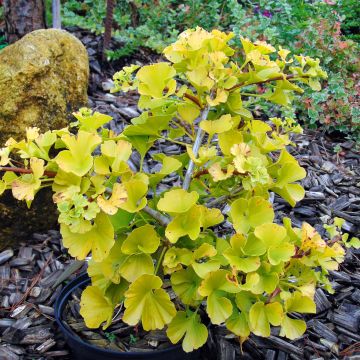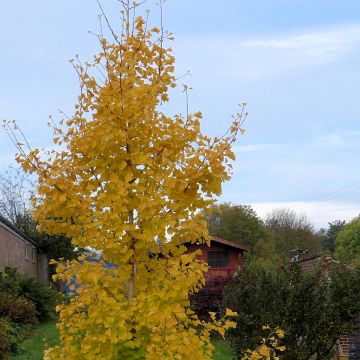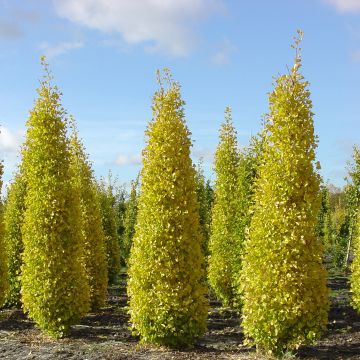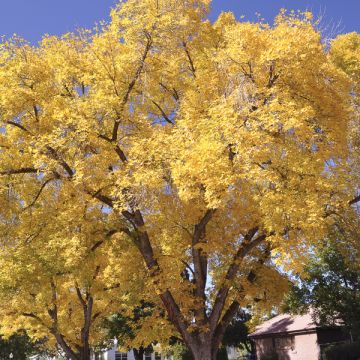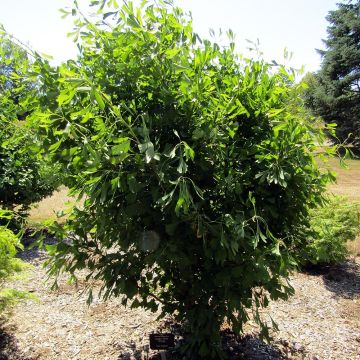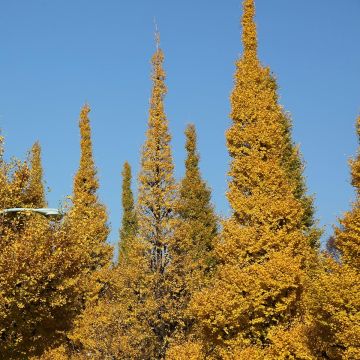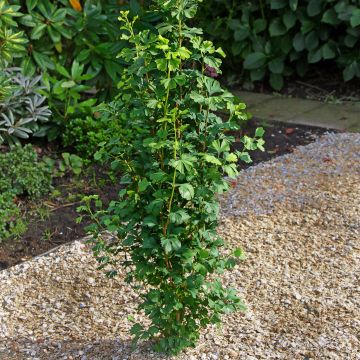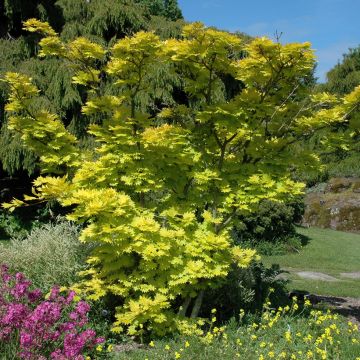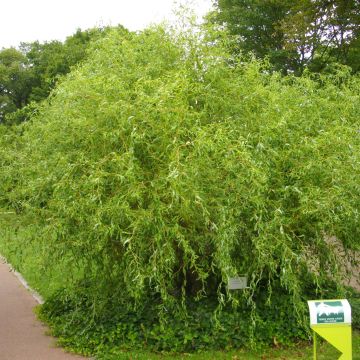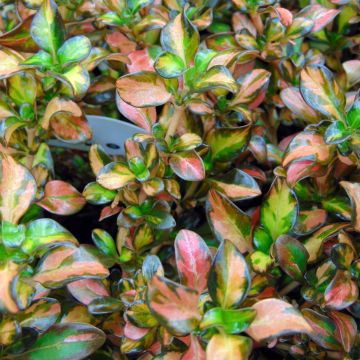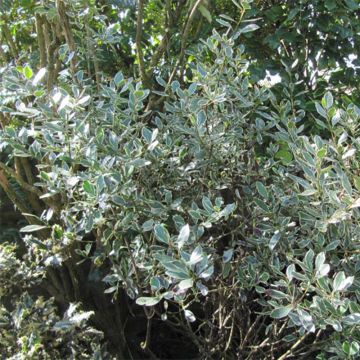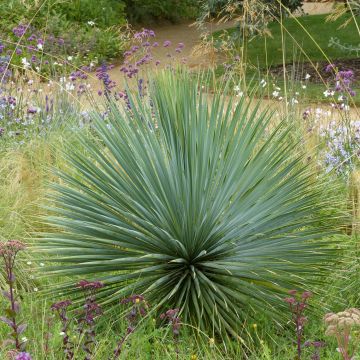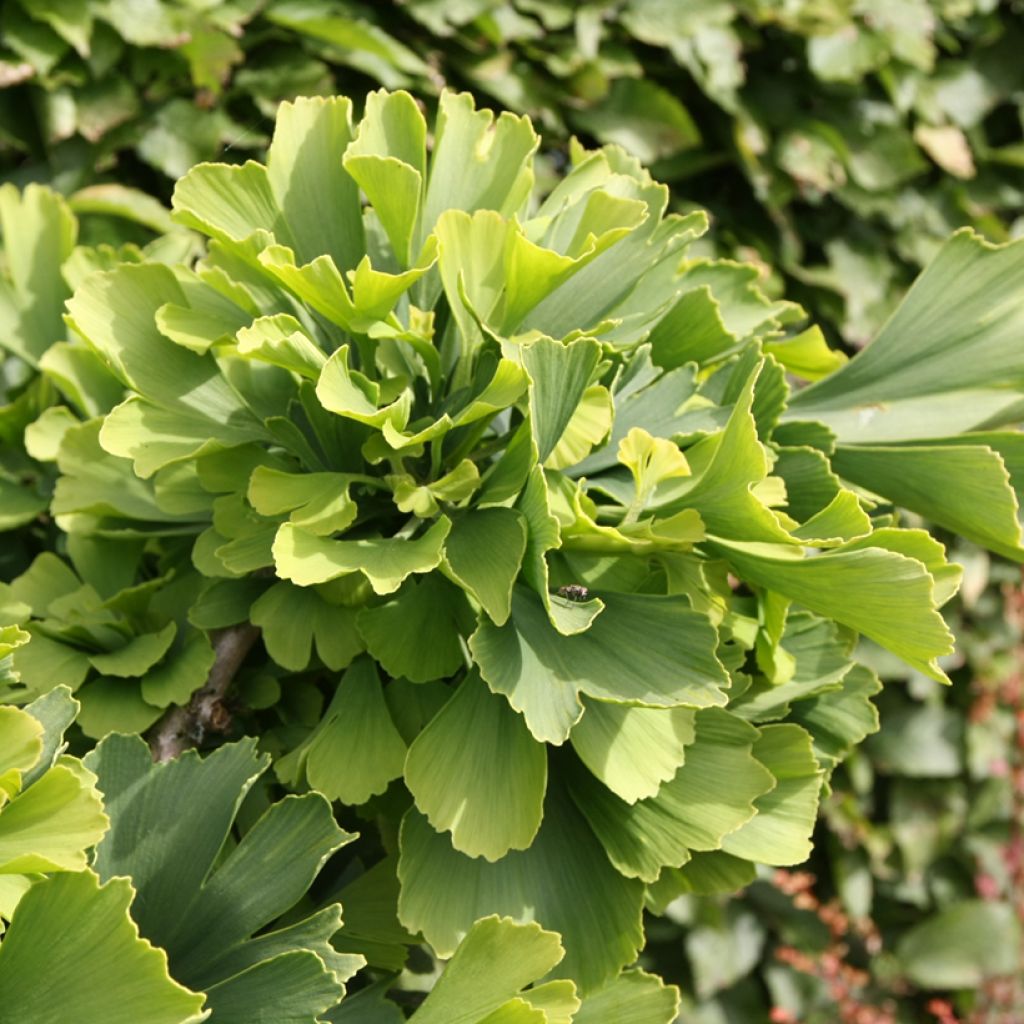

Ginkgo biloba Troll
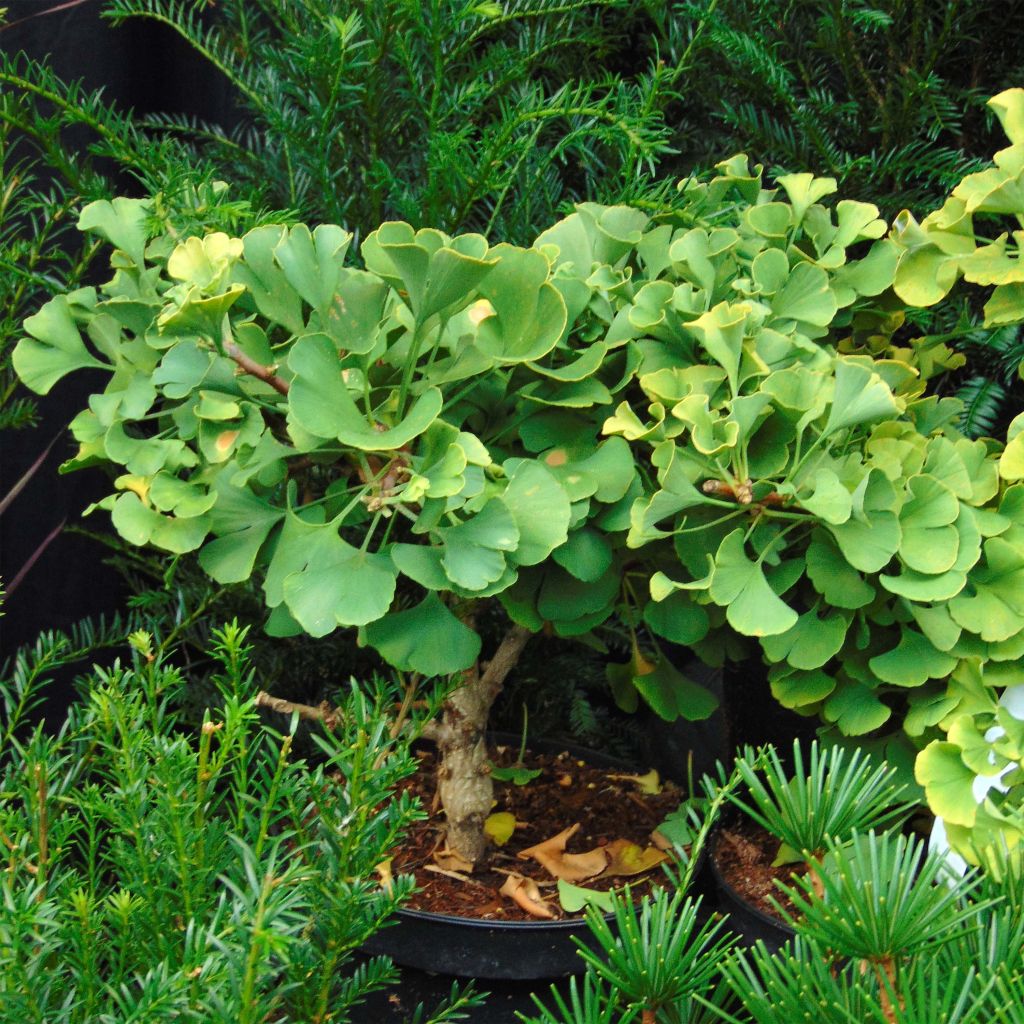

Ginkgo biloba Troll
Ginkgo biloba Troll
Ginkgo biloba Troll
Maidenhair Tree, Living Fossil Tree
Mine is now 6 years old. It's absolutely stunning. You need to be patient because the growth is very slow, but it's a magnificent piece that deserves a prime spot.
Mathy, 01/06/2025
Special offer!
Receive a €20 voucher for any order over €90 (excluding delivery costs, credit notes, and plastic-free options)!
1- Add your favorite plants to your cart.
2- Once you have reached €90, confirm your order (you can even choose the delivery date!).
3- As soon as your order is shipped, you will receive an email containing your voucher code, valid for 3 months (90 days).
Your voucher is unique and can only be used once, for any order with a minimum value of €20, excluding delivery costs.
Can be combined with other current offers, non-divisible and non-refundable.
Why not try an alternative variety in stock?
View all →This plant carries a 24 months recovery warranty
More information
We guarantee the quality of our plants for a full growing cycle, and will replace at our expense any plant that fails to recover under normal climatic and planting conditions.
Would this plant suit my garden?
Set up your Plantfit profile →
Description
Ginkgo biloba 'Troll' is a dwarf variety of maidenhair tree. It is small and has a dense habit. Its unusual silhouette resembles a large mushroom. It is adorned with fan-shaped leaves, characteristic of the species, but smaller and more undulate. This vegetation changes from olive-green to a darker green in summer, before turning golden yellow in autumn. The architecture of this small tree is decorative even in winter, when it is devoid of leaves. A botanical curiosity that will have a great impact in a pot on a patio, near a doorway, or in a Japanese-style rockery. Plant it in the sun, in any good garden soil that is not too dry.
Ginkgo biloba, also sometimes called 'Venus hair' because of the shape of its leaves and the pattern of its veins resembling capillaries, is a primitive tree of the Ginkgoaceae family, which is now almost extinct. This living fossil does not bear flowers. It normally reaches a height of up to 24m (79ft), with an upright habit in its youth and then spreading out as it grows older, measuring up to 9m (30ft) in diameter. This majestic tree, native to China, has now (and probably for a long time) disappeared from its natural habitat, only surviving thanks to the admiration and respect it has inspired in the human species for many generations, who continue to plant and propagate it in their most beautiful parks.
'Troll' is a recently introduced horticultural variety in Germany about which little is known. It is probably a dwarf mutation of the typical species, characterised by very short branches and internodes and small-sized leaves. The tree has a very slow growth rate and will not exceed 50 to 70cm (20 to 28in) in all directions after 10 years, reaching approximately 1.1m (4ft) after many years. Its branching is compact, and its young shoots are thick and covered with fuzz. Its deciduous leaves are light olive-green in spring, slightly darker in summer, and then an intense golden yellow at the end of the season before falling. Their shape resembles a fan: rounded, divided into two undulate lobes with toothed edges, in the shape of a cone, measuring from 4 to 6cm (2in) wide. This small tree remarkably resists urban pollution and severe cold.
Ginkgo 'Troll' can be planted in a container near a doorway or on a patio. It can also be planted as a standalone specimen on a lawn, where it will become a focal point for much of the year. Its sculptural design integrates particularly well into Japanese, exotic, or contemporary settings. It can also be planted with small-sized Japanese maples, oakleaf hydrangeas, and purple barberries, for example. It is a beautiful subject for an urban garden or a rooftop terrace.
Interestingly, despite its deciduous leaves, Ginkgo biloba is a conifer from a botanical point of view. It is an extremely hardy bush. It is also highly resistant. It was one of the few trees to have survived the bombing of Hiroshima in 1945.
It is the oldest tree species found on Earth: dating back 300 million years, it has survived all the cataclysms that the Earth has experienced. This tree has been living for thousands of years in the Tianmushan Mountains in southeastern China. It was reintroduced to Europe in the 18th century. With exceptional longevity, Ginkgo is also a medicinal plant, with its foliage used to alleviate symptoms of Alzheimer's disease.
Report an error about the product description
Ginkgo biloba Troll in pictures
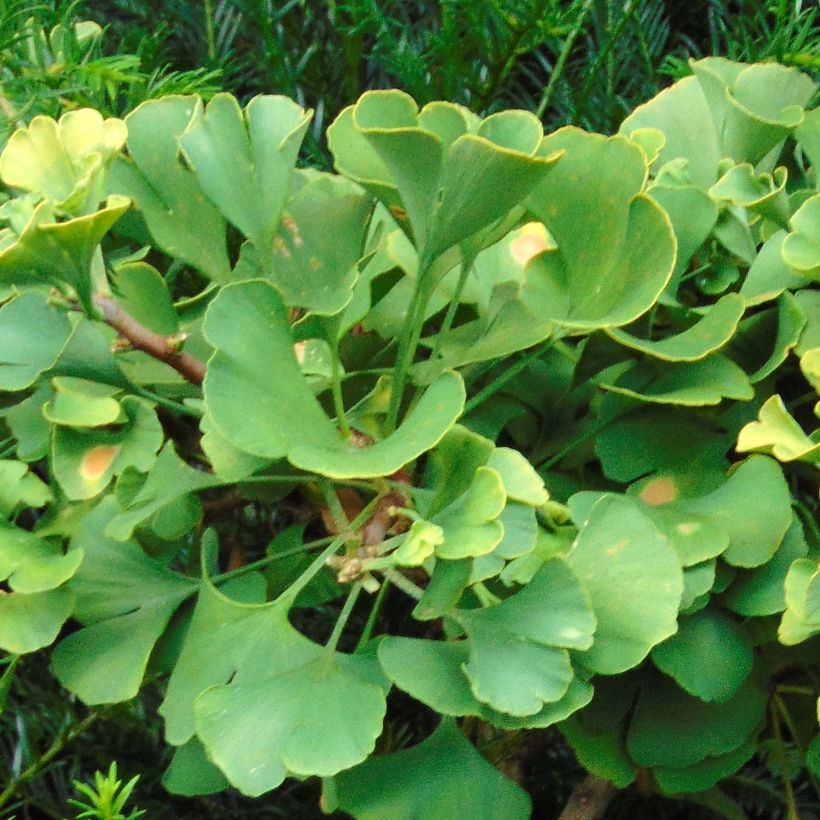

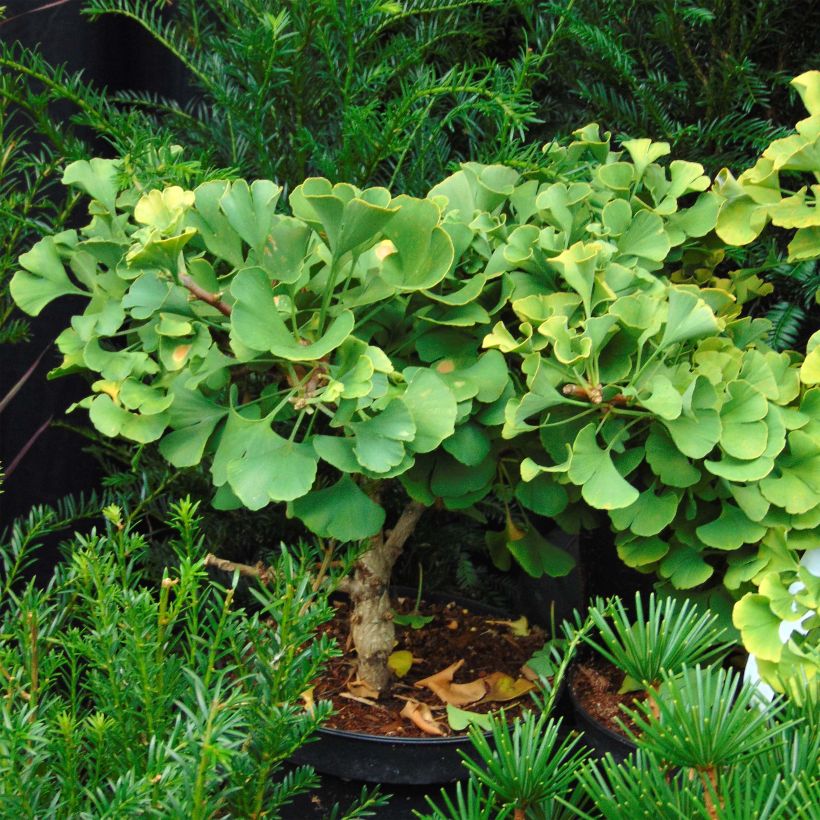

Plant habit
Foliage
Botanical data
Ginkgo
biloba
Troll
Ginkgoaceae
Maidenhair Tree, Living Fossil Tree
Cultivar or hybrid
Other Ginkgo
View all →Planting and care
Ginkgo Biloba 'Troll' is an extremely hardy tree, resistant to temperatures as low as -30°C (-22°F). However, it fears excessive heat, suffering beyond 30°C (86°F), especially if the soil is dry. It thrives in the sun in any good fertile, deep and well-drained soil. It is important to ensure that it does not lack water during the summer period. It tolerates soil with a tendency to be lime-rich as long as it remains moist. In dry soil, this tree will develop very slowly. However, it will also suffer in soil that is too wet and heavy, constantly saturated with water. It can withstand urban pollution well. When planting, dig a hole deep enough and rich in humus. During the plant's resting period, in February-March, remove unruly, excessively long or tangled branches to maintain a balanced habit.
Planting period
Intended location
Care
-
, onOrder confirmed
Reply from on Promesse de fleurs
Similar products
Haven't found what you were looking for?
Hardiness is the lowest winter temperature a plant can endure without suffering serious damage or even dying. However, hardiness is affected by location (a sheltered area, such as a patio), protection (winter cover) and soil type (hardiness is improved by well-drained soil).

Photo Sharing Terms & Conditions
In order to encourage gardeners to interact and share their experiences, Promesse de fleurs offers various media enabling content to be uploaded onto its Site - in particular via the ‘Photo sharing’ module.
The User agrees to refrain from:
- Posting any content that is illegal, prejudicial, insulting, racist, inciteful to hatred, revisionist, contrary to public decency, that infringes on privacy or on the privacy rights of third parties, in particular the publicity rights of persons and goods, intellectual property rights, or the right to privacy.
- Submitting content on behalf of a third party;
- Impersonate the identity of a third party and/or publish any personal information about a third party;
In general, the User undertakes to refrain from any unethical behaviour.
All Content (in particular text, comments, files, images, photos, videos, creative works, etc.), which may be subject to property or intellectual property rights, image or other private rights, shall remain the property of the User, subject to the limited rights granted by the terms of the licence granted by Promesse de fleurs as stated below. Users are at liberty to publish or not to publish such Content on the Site, notably via the ‘Photo Sharing’ facility, and accept that this Content shall be made public and freely accessible, notably on the Internet.
Users further acknowledge, undertake to have ,and guarantee that they hold all necessary rights and permissions to publish such material on the Site, in particular with regard to the legislation in force pertaining to any privacy, property, intellectual property, image, or contractual rights, or rights of any other nature. By publishing such Content on the Site, Users acknowledge accepting full liability as publishers of the Content within the meaning of the law, and grant Promesse de fleurs, free of charge, an inclusive, worldwide licence for the said Content for the entire duration of its publication, including all reproduction, representation, up/downloading, displaying, performing, transmission, and storage rights.
Users also grant permission for their name to be linked to the Content and accept that this link may not always be made available.
By engaging in posting material, Users consent to their Content becoming automatically accessible on the Internet, in particular on other sites and/or blogs and/or web pages of the Promesse de fleurs site, including in particular social pages and the Promesse de fleurs catalogue.
Users may secure the removal of entrusted content free of charge by issuing a simple request via our contact form.
The flowering period indicated on our website applies to countries and regions located in USDA zone 8 (France, the United Kingdom, Ireland, the Netherlands, etc.)
It will vary according to where you live:
- In zones 9 to 10 (Italy, Spain, Greece, etc.), flowering will occur about 2 to 4 weeks earlier.
- In zones 6 to 7 (Germany, Poland, Slovenia, and lower mountainous regions), flowering will be delayed by 2 to 3 weeks.
- In zone 5 (Central Europe, Scandinavia), blooming will be delayed by 3 to 5 weeks.
In temperate climates, pruning of spring-flowering shrubs (forsythia, spireas, etc.) should be done just after flowering.
Pruning of summer-flowering shrubs (Indian Lilac, Perovskia, etc.) can be done in winter or spring.
In cold regions as well as with frost-sensitive plants, avoid pruning too early when severe frosts may still occur.
The planting period indicated on our website applies to countries and regions located in USDA zone 8 (France, United Kingdom, Ireland, Netherlands).
It will vary according to where you live:
- In Mediterranean zones (Marseille, Madrid, Milan, etc.), autumn and winter are the best planting periods.
- In continental zones (Strasbourg, Munich, Vienna, etc.), delay planting by 2 to 3 weeks in spring and bring it forward by 2 to 4 weeks in autumn.
- In mountainous regions (the Alps, Pyrenees, Carpathians, etc.), it is best to plant in late spring (May-June) or late summer (August-September).
The harvesting period indicated on our website applies to countries and regions in USDA zone 8 (France, England, Ireland, the Netherlands).
In colder areas (Scandinavia, Poland, Austria...) fruit and vegetable harvests are likely to be delayed by 3-4 weeks.
In warmer areas (Italy, Spain, Greece, etc.), harvesting will probably take place earlier, depending on weather conditions.
The sowing periods indicated on our website apply to countries and regions within USDA Zone 8 (France, UK, Ireland, Netherlands).
In colder areas (Scandinavia, Poland, Austria...), delay any outdoor sowing by 3-4 weeks, or sow under glass.
In warmer climes (Italy, Spain, Greece, etc.), bring outdoor sowing forward by a few weeks.































